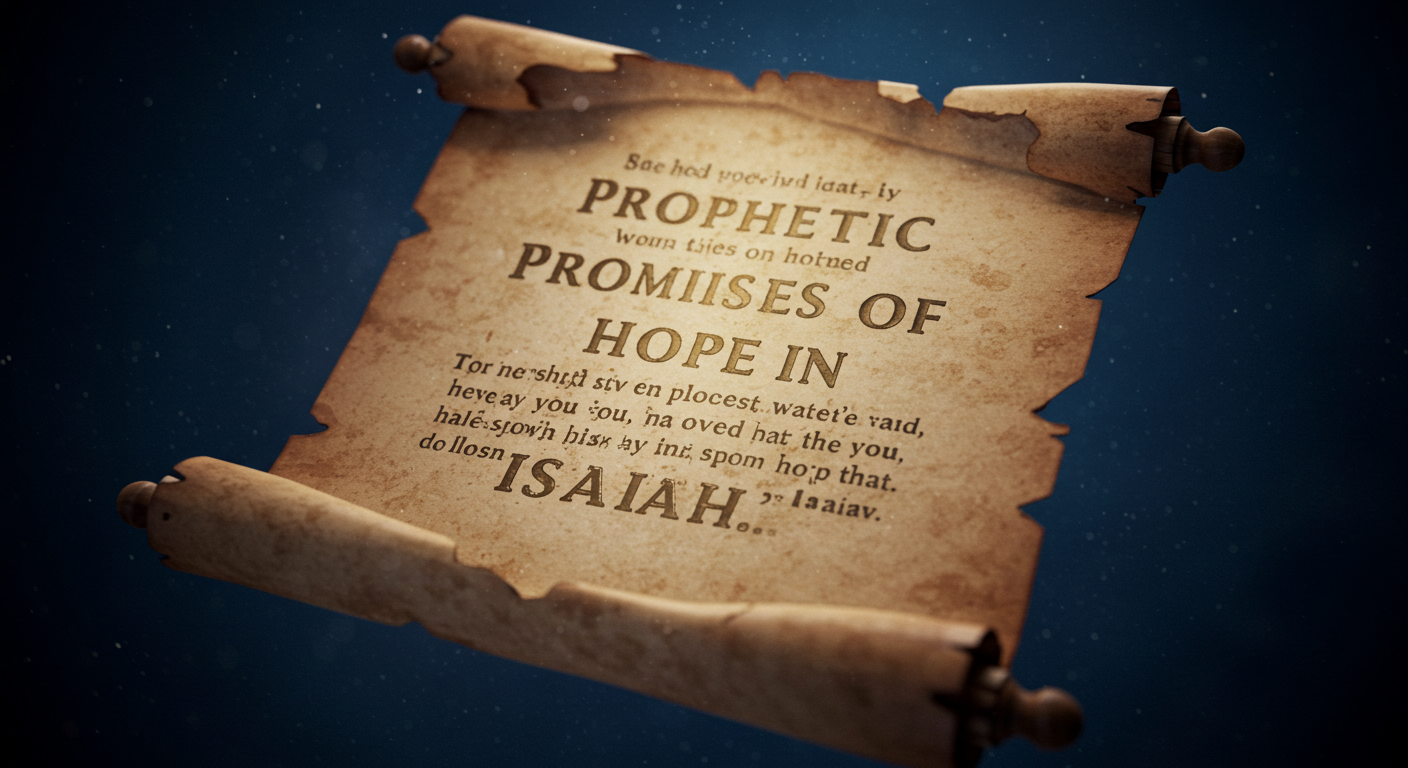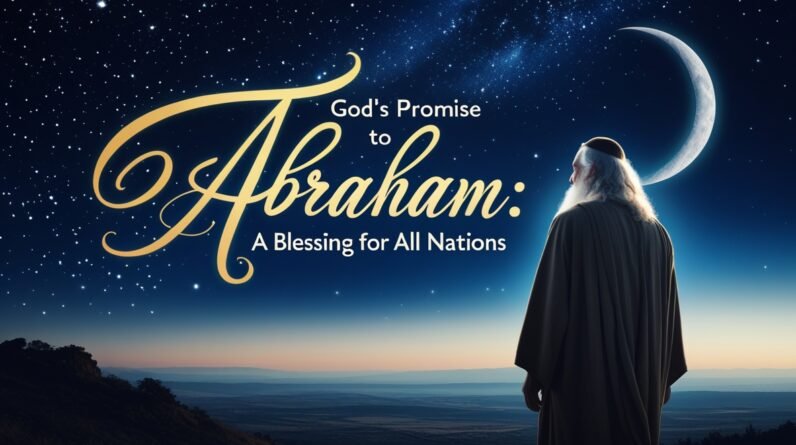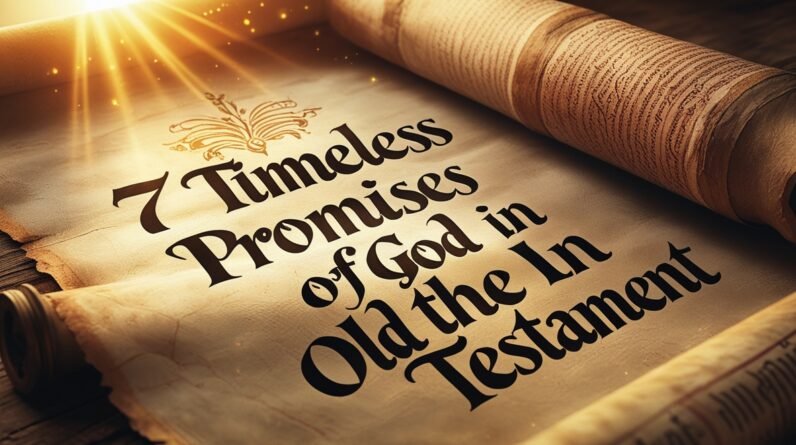Prophetic Promises of Hope in Isaiah
You’re about to take a journey into one of the most hopeful and theologically rich books of the Bible. Isaiah brims with promises that have comforted generations, and when you search the promises in Isaiah, you’ll find a thread of assurance that runs from judgment to restoration, from despair to hope. This article explores those promises—especially the famous messianic texts like Isaiah 9:6-7 and the servant songs in Isaiah 53—so you can see how these prophetic words still speak into your life today.
Why Isaiah matters to you
Isaiah feels both ancient and startlingly relevant. When you read the promises in Isaiah, you encounter language that addresses political turmoil, personal fear, and communal sin, but it also points you toward a future shaped by justice, peace, and healing. That relevance makes Isaiah not just a historical artifact but a living word for your hope and faith. The prophet’s voice invites you to stand between the immediate reality and the promised future, holding onto the conviction that God’s redemptive plan is unfolding.
A quick historical snapshot
When you want to understand the context of the promises in Isaiah, it helps to know a little history. Isaiah ministered in Judah during the 8th century BCE, a chaotic era of shifting empires and national anxiety. The book spans decades and addresses events that touch on both immediate political issues and long-term divine promises. As you read, you’ll notice that Isaiah oscillates between dire warnings and soaring promises, so the background gives you clues about why those promises mattered then—and why they matter now.
The theological core of Isaiah’s message
Isaiah’s theology centers on God’s holiness, sovereignty, and commitment to justice. When you look for the promises in Isaiah, you find them grounded in God’s character: a holy God who cannot ignore injustice but who also promises to restore and renew. This promise-driven theology shapes Isaiah’s prophecies about a coming ruler, a suffering servant, and a renewed creation. In other words, the promises in Isaiah aren’t just platitudes; they’re rooted in the most fundamental claims about who God is and how God acts in history.
Isaiah 9:6-7 — A promise you can hold
When you read Isaiah 9:6-7, you come face to face with one of the clearest messianic promises in Isaiah. The passage speaks of a child born who will have authoritative titles—Wonderful Counselor, Mighty God, Everlasting Father, Prince of Peace—and whose government will bring endless justice and righteousness. For you, those words function as a promise of leadership that combines wisdom, strength, paternal care, and peace. They say that the disordered world you experience will one day be regulated by a King whose rule reflects God’s character.
Unpacking the titles in Isaiah 9:6-7
Each title in Isaiah 9:6 offers a facet of what that promised leader will be. “Wonderful Counselor” speaks to wisdom in the face of confusion; “Mighty God” points to divine power; “Everlasting Father” communicates care and enduring presence; and “Prince of Peace” promises a deep, lasting reconciliation. When you consider these titles, the promises in Isaiah become personal: they suggest a leader who can guide your decisions, protect you in weakness, give you belonging, and bring peace to your heart and community.
The royal reign — justice and righteousness
In Isaiah 9:7 the promise focuses on the nature of the leader’s reign—justice and righteousness that endure forever. You don’t just get a savior for private comfort; you get a ruler who transforms public life. That’s significant for how you think about God’s promises: they’re not limited to spiritual platitudes but extend into social and communal restoration. The promise in Isaiah of an everlasting government invites you to hope for systemic change aligned with God’s justice.
Isaiah 53 — A promise wrapped in suffering
If Isaiah 9 leans into messianic royalty, Isaiah 53 introduces the theme of the suffering servant. This chapter delivers a promise that healing and redemption will come through someone who suffers on behalf of others. For you, this is a deeply personal promise: it says your wounds and sicknesses are known and that the path to restoration may involve suffering, but it won’t be meaningless. The servant’s suffering becomes the vehicle through which your healing is purchased.
Why the suffering servant matters to your hope
When you connect the promises in Isaiah with your own pain, you see this: salvation is not abstract. The servant who is “pierced for our transgressions” and “crushed for our iniquities” (phrases from Isaiah 53:5-6) points to a God who is engaged with human suffering to the core. That involvement gives you hope that God is not distant from your struggles; rather, God’s redemptive plan enters suffering so that even your brokenness can be transformed.

The promises in Isaiah and the prophetic “already, not yet”
One of the most helpful ways to read Isaiah is with the “already, not yet” framework. The promises in Isaiah often describe realities that are inaugurated—partially fulfilled in history—but not yet fully consummated. For example, the leadership prophesied in Isaiah 9:6-7 begins to be realized in historical moments and in the person of Christ, yet the fullness of that everlasting reign remains future. When you hold that tension, the promises in Isaiah become a steady horizon: you experience glimpses of fulfillment and yet maintain a hopeful expectation.
Other key passages that reinforce hope
Isaiah contains many passages that reinforce the promises in Isaiah as a whole. When you read Isaiah 40:31, for instance, you find the promise of renewed strength for those who wait on the Lord. Isaiah 41:10 gives a personal promise of presence—“I will strengthen you and help you.” Isaiah 43:1-2 promises protection through waters and fires, and Isaiah 61:1-3 speaks of the Jubilee-like restoration—the good news to the oppressed, comfort for mourners, and a mantle of praise. Each of these passages enriches the tapestry of promise you find in Isaiah.
How these promises shaped early Christian understanding
You’ll notice that the early Christian community read the promises in Isaiah messianically—especially Isaiah 53 and Isaiah 9:6-7. The New Testament writers saw in these prophecies a foreshadowing of Jesus’ life, death, and expected return. That interpretive move doesn’t erase Isaiah’s original context; instead, it expands how you understand the scope of the promises in Isaiah—both as immediate hope for Isaiah’s contemporaries and as part of a larger redemptive narrative.
Promises in Isaiah and personal transformation
The promises in Isaiah don’t just predict events; they transform how you live. When you internalize promises like those in Isaiah 40:31 and Isaiah 61:1-3, your identity can shift. You begin to see yourself as someone who is sustained by hope, called to comfort others, and invited to participate in God’s restorative work. That is practical: the promises in Isaiah motivate resilience, compassion, and a commitment to justice in your daily choices.
How to read Isaiah devotionally
If you want to bring the promises in Isaiah into your daily devotional rhythm, start small. Pick a chapter—maybe Isaiah 53 or Isaiah 40—and read slowly, reflecting on each phrase. Ask: How do these promises intersect with my current longings? Where do I need to trust God’s promises for strength, protection, or restoration? Use a reputable source like Bible Gateway to compare translations and footnotes so the historical and theological nuances deepen your meditation.
Applying Isaiah’s promises to your community
The promises in Isaiah consistently move beyond individual consolation to communal transformation. When Isaiah 9:7 speaks of an endless government of justice, it’s a call for communities to embody fairness and peace. You can live this out by working for justice, caring for the vulnerable, and advocating for policies that reflect the dignity of every person. The prophetic promise becomes a blueprint: your local actions can echo Isaiah’s vision of societal renewal.
Promises in Isaiah and suffering
You won’t read Isaiah without encountering suffering—the prophet addresses exile, defeat, and moral collapse. Yet the promises in Isaiah give a framework for not letting suffering be final. Isaiah 53 shows that suffering can have vicarious meaning; Isaiah 40 reassures you that weariness will be met with renewed strength. When you face hardship, Isaiah’s promises provide a narrative that gives your pain context and purpose, helping you to hold on to hope.
The interplay of judgment and promise
Isaiah doesn’t sugarcoat consequences—judgment and correction appear alongside hope. That tension is crucial: the promises in Isaiah are not a bypass around moral accountability. Instead, they’re part of a holistic message in which God calls people to repentance and simultaneously promises restoration. You can read those promises as both a comfort and a challenge: comfort because restoration is possible, and challenge because it requires alignment with God’s justice and mercy.
The eschatological horizon in Isaiah
Some of the promises in Isaiah point you beyond the immediate future to an eschatological horizon—a fully renewed creation. Images of a lion lying down with a lamb and a world where suffering is undone populate prophetic visions. These aren’t mere metaphors; they’re shaping hopes that inform how you live. When you embrace the promises in Isaiah as eschatological, you adopt a long-term posture of hope that affects your ethics, priorities, and resilience in the present.
Poetry, prophecy, and promise: Isaiah’s literary power
Isaiah’s poetic flourishes help you access the promises in Isaiah imaginatively as well as intellectually. The book combines vivid imagery, stirring laments, and majestic promises that make the future feel alive. You don’t just read about a promised ruler or a suffering servant; you experience the emotional and spiritual weight of those promises through Isaiah’s artistry. That makes the prophetic promises of hope in Isaiah not just informative but transformative—awakening your imagination to God’s future.
How translation matters for understanding promises
When you study the promises in Isaiah, translation choices matter. Some Hebrew words carry cultural and theological nuances that different English versions render in varied ways. Using a resource like Bible Gateway lets you compare translations so you can sense shades of meaning. For instance, terms rendered as “Mighty God” or “Everlasting Father” in Isaiah 9:6 prompt rich reflection on divine attributes. Comparing translations helps you avoid flattening the text and allows the promises in Isaiah to reveal their full depth.
Common misunderstandings about Isaiah’s promises
People sometimes approach the promises in Isaiah as if they’re simple prophecies with a single application. That’s a pitfall. Isaiah’s promises can be messianic, historical, and eschatological all at once. Another common mistake is to privatize the promises—treating them only as personal comfort rather than communal transformation. You’ll get a fuller grasp by appreciating both the personal and public dimensions of Isaiah’s promises.
Reading Isaiah with historical humility
Because Isaiah blends near-term and far-term promises, you need historical humility when interpreting the text. That means recognizing what Isaiah’s original audience could reasonably expect and how later interpreters—especially early Christians—found additional layers of meaning. If you stay humble, you’ll be open to the multiple ways the promises in Isaiah speak across time, giving you both grounding and expansiveness in your faith.
Promises in Isaiah and social justice
Isaiah’s prophetic vision calls you to action. When you take the promises in Isaiah seriously—especially the commitments to justice found throughout the book—you’ll be motivated toward social engagement. Isaiah’s promises aren’t a passive consolation; they’re a summons to embody God’s restorative purposes in the public square. When you advocate for the marginalized or work for fair systems, you’re participating in the fulfillment of those promises.
How to preach or teach the promises in Isaiah
If you’re sharing Isaiah with others, keep the balance between promise and accountability. Use passages like Isaiah 9:6-7 and Isaiah 53 as entry points, then connect them to daily realities—suffering, leadership, justice, and hope. Encourage your listeners to wrestle with both the comfort and the challenge of Isaiah’s words so the promises in Isaiah become catalysts for both faith and action.
Personal reflection prompts on Isaiah’s promises
You can deepen your engagement with the promises in Isaiah by asking reflective questions: Where do you most need God’s restorative power today? Which promise from Isaiah most speaks to your current season? How can you join the prophetic vision of justice in your community? These prompts help you move from reading to living, making Isaiah’s promises part of your ongoing spiritual practice.
A brief guide to further study
If you want to dig deeper into the promises in Isaiah, consider the following approach: Read slowly, compare translations on Bible Gateway, consult reputable commentaries, and join a study group to wrestle with interpretive challenges. Focus on key chapters—like Isaiah 9, Isaiah 40, and Isaiah 53—and track recurring themes of promise, judgment, and restoration. This approach helps you map how individual promises interlock across the prophetic narrative.
The enduring invitation of Isaiah’s promises
Ultimately, the promises in Isaiah invite you into a relationship of trust, action, and hope. You’re invited to trust a God who is both just and merciful, to act in ways that mirror divine priorities, and to hope in a future where pain and violence are overcome. Isaiah’s prophetic promises are not distant or irrelevant; they’re a present resource that reshapes the way you see yourself, your neighbors, and the world to come.
Closing thoughts
When you stand under the promises in Isaiah, you’re standing between what is and what will be. The prophet’s words give you a theology for navigating fear and a framework for pursuing justice. Whether you’re drawn to the royal promise of Isaiah 9:6-7 or the redemptive suffering of Isaiah 53, you’ll find that Isaiah’s promises are designed to sustain, challenge, and transform you.
Explore More
For further reading and encouragement, check out these posts:
👉 7 Bible Verses About Faith in Hard Times
👉 Job’s Faith: What We Can Learn From His Trials
👉 How To Trust God When Everything Falls Apart
👉 Why God Allows Suffering – A Biblical Perspective
👉 Faith Over Fear: How To Stand Strong In Uncertain Seasons
👉 How To Encourage Someone Struggling With Their Faith
👉 5 Prayers for Strength When You’re Feeling Weak

📘 Jesus and the Woman Caught in Adultery – Grace and Mercy Over Judgement
A powerful retelling of John 8:1-11. This book brings to life the depth of forgiveness, mercy, and God’s unwavering love.
👉 Check it now on Amazon 🛒💥
🔥 “Every great message deserves a home online.” 🌍💬🏡
Don’t let your calling stay hidden. Start a Christian blog or website using Hostinger — with 99.9% uptime, a free domain, and SSL, your voice can shine for God’s glory anytime, anywhere.
💥 Begin today. 🛒 Try it RISK-FREE! ✅
✝️ “Your body is God’s temple — care for it with purpose.” 💪💖🏛️
Renew your energy and restore balance naturally. Mitolyn helps support a healthy metabolism, giving you the vitality to live out God’s calling with strength and confidence.
🔥 Unlock Your Metabolic Power! ⚡Burn More Calories & Feel Great With Mitolyn. 💪
👉 Start Today. 🚀 Check Price Now. 🛒💰
💰 As a ClickBank & Amazon Affiliate, I earn from qualifying purchases.
📖 Acknowledgment: All Bible verses referenced in this article were accessed via Bible Gateway (or Bible Hub).
🚀 Want to explore more? 👉 Dive into our new post on Why Jesus? and experience the 🔥 life-changing truth of the Gospel!








